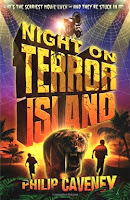Talking about Biography and Fiction
Just been back to Lancaster University, where I was Royal Literary Fund Fellow last year, to meet this year's fellow Philip Caveney who writes scarey books for young adults. We'd been invited to give a joint seminar - actually just a posh way of saying that we gave a talk about our own writing to the university staff and whoever else wanted to come along.
Philip started out writing thrillers for grown ups but moved to young adult when his ten year old daughter asked why he wouldn't let her read any of them. The first YA was written for her and since then he's been very successful. He read from his latest WIP about a young boy who falls through the floor in a museum in Edinburgh and finds himself back in time and face to face with an infamous Plague Doctor during the time of the Black Death. It was wonderfully entertaining.
I couldn't compete with that! So tried to give some insights into how I write and the different approaches to writing biography and fiction and the fact that biography hasn't always been valued as much as fiction - biographers have been vilified as hearse chasers, vultures picking over the bones of the dead, purveyors of literary lace curtain twitching, and upmarket tabloid journalism. Like a kind of literary Burke and Hare we sell other people's lives and live off the proceeds.
Virginia Woolf said that biography neglected the imagination and worked 'at a lower level' than the sublime art of fiction. But why should it do that? I've always thought of biography as a 'found' novel, where you are given the plot, the characters and some of the dialogue and you have to create a riveting story that brings it all to life for the reader. A novel on the other hand, could be thought of as a fictional biography.
Because I write across both genres I spend a lot of time thinking about the differences between them and how one can feed into the other - using the techniques of one genre to solve problems in the other. I've also been puzzled by the recent debate about fake memoirs. It seems that if a novel is discovered to be autobiographical it isn't a crime, but if a memoir turns out to be a work of fiction this is a sackable offence for an author. Very strange, since one of the most famous novels of all time began life as the autobiography of a governess, edited by Currer Bell.
These days, Jane Eyre would never have made it to the shops, the book tour would have been cancelled and the author blacklisted. Because this is what happened to Love and Consequences published by Penguin USA. It was, according to the sales team, a riveting, un-put-downable read, but as soon as it was discovered to be (mainly) fictional, it was unreadable and the author guilty of 'a huge personal and professional betrayal'.
Philip started out writing thrillers for grown ups but moved to young adult when his ten year old daughter asked why he wouldn't let her read any of them. The first YA was written for her and since then he's been very successful. He read from his latest WIP about a young boy who falls through the floor in a museum in Edinburgh and finds himself back in time and face to face with an infamous Plague Doctor during the time of the Black Death. It was wonderfully entertaining.
I couldn't compete with that! So tried to give some insights into how I write and the different approaches to writing biography and fiction and the fact that biography hasn't always been valued as much as fiction - biographers have been vilified as hearse chasers, vultures picking over the bones of the dead, purveyors of literary lace curtain twitching, and upmarket tabloid journalism. Like a kind of literary Burke and Hare we sell other people's lives and live off the proceeds.
Virginia Woolf said that biography neglected the imagination and worked 'at a lower level' than the sublime art of fiction. But why should it do that? I've always thought of biography as a 'found' novel, where you are given the plot, the characters and some of the dialogue and you have to create a riveting story that brings it all to life for the reader. A novel on the other hand, could be thought of as a fictional biography.
 |
| Jane Eyre, a literary fraud |
These days, Jane Eyre would never have made it to the shops, the book tour would have been cancelled and the author blacklisted. Because this is what happened to Love and Consequences published by Penguin USA. It was, according to the sales team, a riveting, un-put-downable read, but as soon as it was discovered to be (mainly) fictional, it was unreadable and the author guilty of 'a huge personal and professional betrayal'.



Thank's!!
ReplyDeleteI have an article:
james nachtwey biography